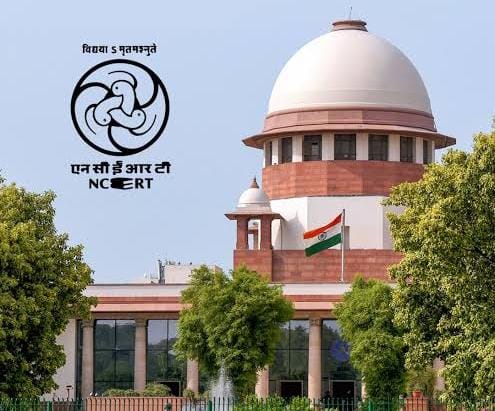Sandeep Dhand
Nutritionist And Health Educator
What Is a Malignant Liver Tumor?

A malignant liver tumor is a type of cancer that begins in the liver. The liver is a large, vital organ located in the upper right side of the abdomen. It helps in digesting food, storing energy, and removing toxins from the blood. When abnormal cells in the liver start to grow uncontrollably, they form a tumor. If the tumor is cancerous and can spread to other parts of the body, it is called a malignant liver tumor.
What Does Stage 2 Liver Cancer Mean?
Liver cancer is classified in stages from 1 to 4. Stage 2 is an early but serious stage. It means:
There is a single tumor that may have started growing into a blood vessel, or
There are multiple small tumors in the liver (but not in other organs),
The cancer has not yet spread to nearby lymph nodes or other parts of the body.
At this stage, treatment is often possible and can be successful if started early.
Types of Liver Cancer
Hepatocellular Carcinoma (HCC):
The most common type of primary liver cancer. It begins in liver cells called hepatocytes.
Intrahepatic Cholangiocarcinoma:
Starts in the bile ducts inside the liver.
Hepatoblastoma:
A rare type that usually affects young children.
Secondary Liver Cancer:
Cancer that starts in another organ (like the colon or breast) and spreads to the liver.
Common Causes of Malignant Liver Tumor
Liver cancer does not develop overnight. It is usually the result of long-term damage to the liver. The most common causes include:
Chronic Hepatitis B or C Infection
These viral infections cause inflammation and damage to liver cells, increasing the risk of liver cancer.
Cirrhosis
Cirrhosis is scarring of the liver caused by long-term damage. Common causes of cirrhosis include:
Alcohol abuse
Hepatitis infection
Fatty liver disease
Alcohol Abuse
Drinking too much alcohol over many years can damage the liver and increase cancer risk.
Non-Alcoholic Fatty Liver Disease (NAFLD)
This condition occurs when fat builds up in the liver. It is often linked to obesity and diabetes.
Aflatoxin Exposure
Aflatoxins are poisons produced by fungi in spoiled grains and nuts.
Genetic Disorders
Some inherited diseases like hemochromatosis (iron buildup in the liver) can increase cancer risk.
Symptoms of Stage 2 Liver Cancer
In many cases, liver cancer does not show clear symptoms in the early stages. But by Stage 2, some signs may appear:
Pain or discomfort in the upper right abdomen
Unexplained weight loss
Loss of appetite
Nausea or vomiting
Swelling in the abdomen
Fatigue and weakness
Yellowing of the skin and eyes (jaundice)
Itchy skin
Dark-colored urine
If any of these symptoms last more than a few weeks, consult a doctor for further evaluation.
How Is Stage 2 Liver Cancer Diagnosed?
To confirm liver cancer and its stage, doctors may recommend the following tests:
Blood Tests
Liver Function Tests (LFTs)
Alpha-fetoprotein (AFP) test: High levels may indicate liver cancer.
Imaging Tests
Ultrasound
CT Scan (Computed Tomography)
MRI (Magnetic Resonance Imaging)
These scans help locate the tumor and check its size and position.
Biopsy
In some cases, a small sample of liver tissue is taken and tested under a microscope to confirm cancer.
Treatment Options for Stage 2 Liver Cancer
The treatment plan depends on the patient’s overall health, liver function, and tumor size. Stage 2 liver cancer is considered treatable. The main options include:
Surgery (Liver Resection)
If the tumor is limited to one area of the liver and the rest of the liver is healthy, surgery can remove the cancerous part.
Liver Transplant
If the tumor meets specific size criteria, a full liver transplant may be an option. This offers the best chance for a cure.
Ablation Therapy
These treatments destroy cancer cells using heat, cold, or alcohol injections:
Radiofrequency Ablation (RFA)
Microwave Ablation (MWA)
Percutaneous Ethanol Injection (PEI)
Targeted Therapy
Drugs like sorafenib and lenvatinib are used to block the growth of cancer cells by targeting specific proteins.
Immunotherapy
This treatment boosts the body’s immune system to fight cancer. Drugs like nivolumab and atezolizumab are sometimes used.
Transarterial Chemoembolization (TACE)
Chemotherapy drugs are injected directly into the blood vessel feeding the tumor, blocking its blood supply and delivering chemo at the same time.
Diet Plan for Stage 2 Liver Cancer Patients
Proper nutrition supports the liver and overall health during treatment. A healthy diet can reduce symptoms and side effects.
General Guidelines:
Eat small, frequent meals.
Focus on easy-to-digest, low-fat foods.
Avoid processed, fried, and very spicy food.
Stay hydrated (6–8 glasses of water daily).
Best Foods to Eat:
Protein-Rich Foods
Helps repair tissue and prevent muscle loss.
Boiled eggs
Lentils and beans
Tofu and paneer
Low-fat dairy
Chicken (if non-vegetarian)
Fruits and Vegetables
Rich in vitamins and antioxidants.
Apples, bananas, papaya, and melons
Carrots, spinach, beetroot, bottle gourd
Whole Grains
Give energy and fiber.
Brown rice
Oats
Whole wheat bread
Healthy Fats
In small amounts only.
Flaxseeds
Walnuts
Olive oil (limited use)
Foods to Avoid:
Alcohol
Red meat
Fried and greasy foods
Sugary drinks
Excess salt
Canned and packaged foods

Sample One-Day Vegetarian Diet Chart for Stage 2 Liver Cancer
Time Meal Food Suggestions
7:30 AM Early Morning Warm water with lemon or jeera water
8:30 AM Breakfast Oats with milk, banana, and 2 almonds
11:00 AM Mid-Morning Papaya or apple slices
1:00 PM Lunch Brown rice, dal, lauki sabzi, salad
3:30 PM Snack Coconut water or buttermilk
6:30 PM Dinner Khichdi with moong dal and carrot
8:30 PM Post-Dinner Warm turmeric milk.

Lifestyle Tips for Liver Health
Stop drinking alcohol completely.
Avoid smoking and exposure to chemicals.
Maintain a healthy weight.
Exercise regularly (light walking or yoga).
Take prescribed medications only.
Get vaccinated for hepatitis B if not already.
Emotional Support Matters
Getting diagnosed with liver cancer can be emotionally difficult. Here are ways to cope:
Talk to your family or friends.
Join a cancer support group.
Practice meditation or breathing exercises.
Consult a counselor or mental health expert if needed.
Survival and Prognosis
With early diagnosis and proper treatment, many patients with Stage 2 liver cancer live for 3 to 5 years or more. The success rate improves with liver transplant and targeted therapy in eligible patients. Each person’s journey is unique and depends on:
Type and size of tumor
Liver function
Overall health
Response to treatment
Conclusion
Malignant liver tumor Stage 2 is a serious but manageable condition. With timely diagnosis, personalized treatment, and proper diet and care, many people can live longer and maintain a good quality of life. It’s important to follow medical advice, eat healthy, avoid alcohol, and stay mentally strong.
Early action saves lives. Listen to your body, and never ignore the signs.



